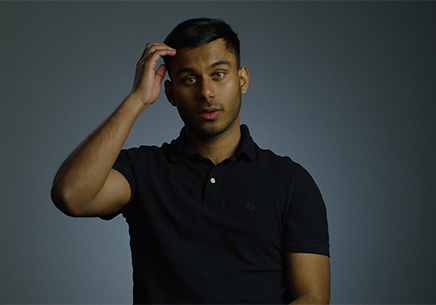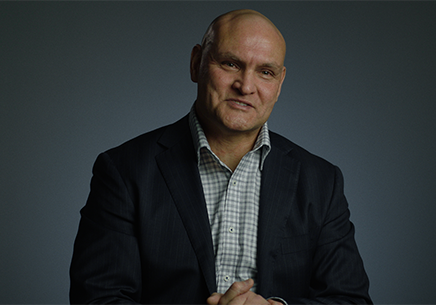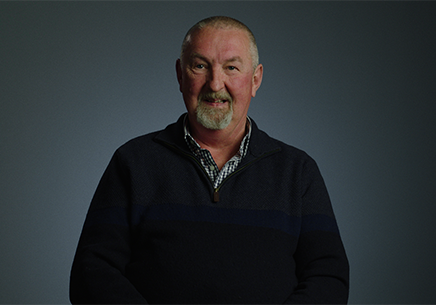Next steps to support a man towards therapy
OK, so you’ve watched the What is Therapy video series (and if you haven't yet, you can check it out here). And now you’re wondering how to go about getting a man you know (who could benefit from therapy) to give it some serious thought. So let’s get into it.
Getting a guy to consider therapy
Telling a man that he seems like he’s struggling, might be met with resistance or denial. But one of the first steps to getting help is knowing there’s something you need help with. He might not even recognize he has a problem or share the concerns of others.
So here's what you can do:
- Try to understand what's going on for him by asking open, curious questions. Don’t assume or jump to conclusions. Brush up on the best way to ask.
- Let him know what you’ve noticed that made you think he might be struggling. Share your concerns or the changes you’ve clocked (in a compassionate, curious, non-judgmental way).
- Hold off on trying to intervene until you understand what his challenges are. Take your time.
- If you think the challenges he’s facing could do with some professional support, like seeing a therapist, gently make this suggestion. His reaction will give you a sense of how open he currently is to this type of support.
- There are barriers for some men when it comes to accessing psychological help and support. Some resistance should be expected. He might not be on board straight away.
So, what should you say exactly?
You might say:
- "I'm worried about you".
- "You haven’t seemed like yourself lately".
- "Things seems a bit different to how they were".
- “When you said 'X' in this situation, what did you mean?”
- “I noticed you didn't attend ‘X’ , I thought you'd be there for sure. What happened?”
What should you not say?
- Avoid telling him he's "mental" or "crazy”.
- Steer clear of issuing an ultimatum ('get help or else").
- Don't go telling him he's being an idiot or a "stereotypical man" if he refuses.
Try framing professional help seeking as a strength
You might say:
- We can all benefit from learning more about how our brain and mind work.
- This just doesn’t seem to be working at the moment mate, why not try and make things a little easier?
- Learning how we operate can help us navigate life’s ups and down more effectively.
- Learning more about ourselves is something to be curious about and not feared.
- Professional support is not about dealing with weakness, it should help us reach our full potential.
- Therapy can be really practical and focused on moving forward rather than just sitting around talking about your past.
- If the idea of therapy is scary, then what could be braver than stepping into that fear?
- There will always be times when an outside and impartial perspective can help.
- What’s the worst that could happen, because it doesn’t feel like much fun right now?
How do I know when to encourage therapy?
Here are some signs to look for:
- He just doesn’t seem his usual self.
- He’s stopped doing or enjoying the things he’s always done and enjoyed before.
- Maybe he’s unusually irritable or losing his temper more easily than he used to. Struggling with rage, anger or resentment?
- Maybe he’s started drinking more or using other substances to try and cope.
- He’s taking risky, even dangerous chances – physically, financially, etc.
- He seems like he’s struggling with his mental health — he’s low, down, anxious or stressed.
- He’s having relationship issues, such as going through a breakup or divorce.
- He’s having work issues, like feeling stuck, being passed over for promotion, has stopped talking about longer-term career goals, or has been fired “for no good reason”.
- He’s going through a big life change. Becoming a dad for the first time? Retiring? Grieving?
- Just seems a bit overwhelmed and not coping with life.
- He’s withdrawing socially.
- Not caring any more, feeling hopeless, withdrawing socially or seems checked out.
- Having trouble functioning well at school or work.
- He’s feeling stuck, or could do with some support in sorting out a specific life problem.
What if he says he’s fine or refuses help?
Try to remain compassionate and motivated to support him with what he’s going through. Use empathy, even if you don’t agree or feel frustrated that he won’t act on your concern. You can’t force someone. Sometimes the timing is just not right.
Don’t give up on him though. In the meantime:
- Share the ‘What is therapy’ video series using one of the suggested sharing prompts.
- Use the ALEC skills (Ask, Listen, Encourage Action, Check in).
- Share any positive experiences you or others might have had with therapy.
- An ultimatum is not recommended. He might have a bad experience if he’s not engaged or ready and he won’t go again.
- Consider whether now is the right time for therapy? Or if it’s maybe something that could be explored in the future. Knowing there’s an option still to try could help him cope better in the meantime.
- Offer to help him with the process, such as booking a doctor’s appointment to get the ball rolling.
- Acknowledge what he said; no one likes being ignored. And tell him you remain concerned.
- Think of this as the first of several conversations. Then you'll feel less pressure to convince him in ‘The One Conversation Where You Save Your Friend.’
- Consider your own needs for help and support. Supporting people through difficult times can be challenging.
Why are guys often resistant to therapy?
There's this idea that men need to solve their own problems, by themselves. Well, that idea needs to be left in the past. Because being a man means using available resources to work towards self-improvement, and leaning into what’s hard to get to where you want to be.
This is true across any profession. Professional athletes, entertainers and CEOs all have coaches, agents and consultants to help them make better decisions. The same should apply to every regular guy. So try framing professional help seeking as a strength to lower resistance to therapy.
Once the decision has been made to find a therapist, what are the next steps?
How can you best help?
If he seems even slightly open to considering professional help, keep up the gentle encouragement and plan for a future check-in.
Check in with him and ask questions like, ‘How’d you go with making that appointment for the doctor or therapist?’
Offer to help him search for a therapist online.
Ask ‘How’s the search going? Did you manage to get an appointment yet?’
There’s a real balance though with how much to push.
It’s best if he’s the one to make the appointment so that he is engaged in the process. But if he asks you to make the appointment for him, do that.

I went in there thinking, "Okay, this might not be for me." But then after having that conversation…It felt very relieving.
Jahin

Therapy helped bring me back from the brink.
Andrew

Don't ignore the problem. It will probably, more than likely, only get worse...a mental problem is just as valid as something that's physical.
Jay

It's really important to keep going because there'll be times, and I found that quite often where you don't wanna go. But it was just making the whole situation worse.
Mark
What if I'm worried they’re at risk of self-harm or suicide?
Take action. Speak to them openly about your concerns. Help connect them with professionals (like a therapist, doctor, suicide call back service or helpline). If there’s immediate risk, call emergency services or a local mental health triage service.
Supporting a guy who's struggling?
Wondering where he should start in even finding a therapist? Or want to learn about wait times or costs? Find out a bit more about therapy and how it all works by clicking the button below.
We’d love to learn about your experience on Movember Conversations
We're here to create better tools and resources for you and your life. So open up! Tell us your thoughts and ideas.
